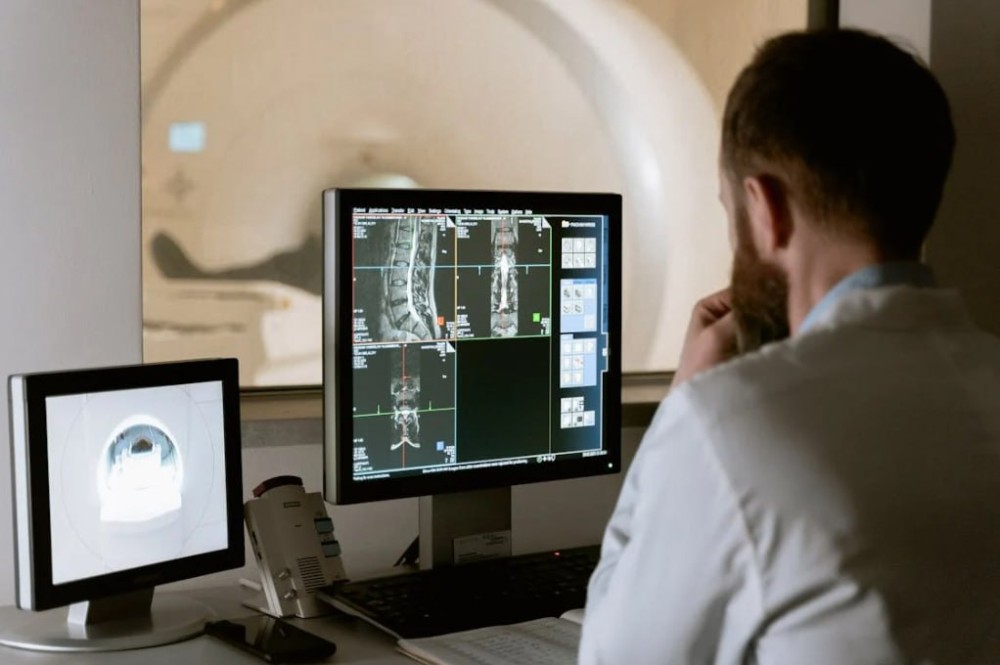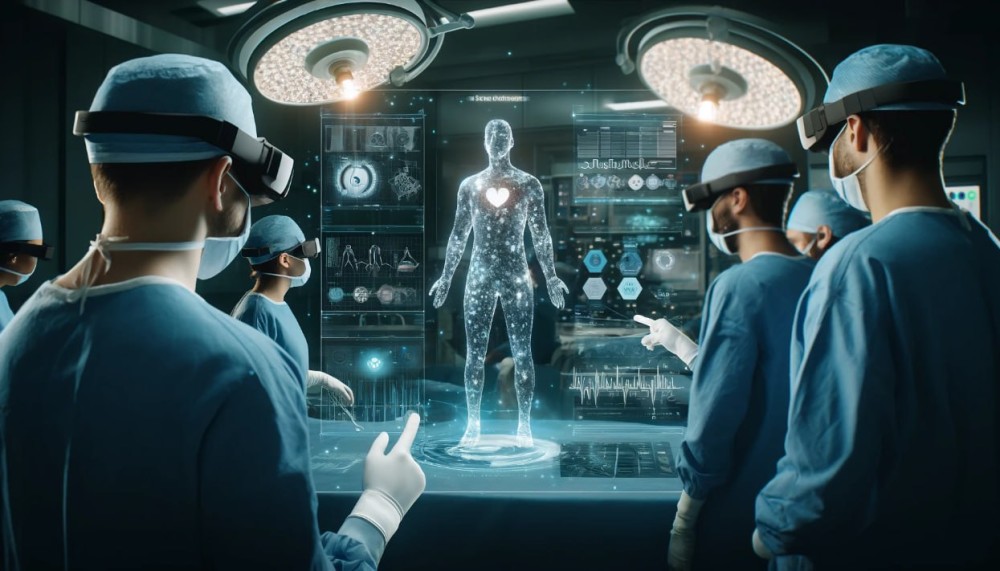Introduction
In the modern world, technology has become an integral part of all aspects of life, and medicine is no exception. Information technology is permeating every area of healthcare, from electronic medical records to complex diagnostic systems and telemedicine. This creates a huge demand for medical specialists who not only master their core specialization, but also have deep knowledge in the field of IT.
IT training and retraining for healthcare professionals are becoming key factors that enable clinics and hospitals to remain at the forefront of medical innovation and provide a high level of treatment and patient care. Information technology competencies help healthcare providers more effectively manage patient data, optimize treatment procedures, and improve patient outcomes through personalized medicine and predictive health models.
In this article, we'll look at why IT training is becoming increasingly important for healthcare professionals, what training methods and programs are available, what obstacles there are to overcome along the way, and what impact this training has on the careers of healthcare professionals.
The importance of IT skills in modern medicine
Information technology plays a critical role in modern medical practice. They provide accuracy, efficiency and personalization of treatment, which is impossible without deep knowledge in the field of IT. In this section, we take a closer look at how IT skills help healthcare professionals improve the quality of care and research.
Application of IT in medical diagnostics and treatment
- Electronic medical records (EMR): Centralized storage of patient medical data in electronic form simplifies access to medical information, ensures its relevance and accuracy. IT skills are required to manage EMR, ensure its protection and optimize data for quick access and analysis.
- Telemedicine: It has become one of the key areas in medicine. Mastery of IT tools allows doctors to consult patients remotely, monitor health status and manage treatment remotely.
- Using big data for predictive medicine: Analyzing large amounts of data allows us to identify patterns that are not visible with traditional approaches. Medical IT specialists use data to develop disease prediction models, which leads to earlier diagnosis and more effective treatment.
Trends and prospects
- Artificial intelligence in medicine: The development of artificial intelligence opens up new opportunities for diagnosis and treatment. For example, machine learning algorithms are already being used to analyze medical images such as MRI or CT scans, which makes it possible to detect pathologies with high accuracy.
- Personalized medicine: The use of patients’ genetic information to select individual therapy becomes possible thanks to IT. This direction requires medical specialists to have in-depth knowledge in the field of bioinformatics and medical informatics.
The development of IT competencies among medical specialists not only improves the quality and accessibility of medical services, but also opens up new horizons for medicine, making it possible to introduce innovative diagnostic and treatment methods. Thus, IT skills are becoming not just important, but also necessary for the modern medical professional.
Methods and training programs for medical specialists

The introduction of IT into medical practice requires not only desire, but also systematic training. Many medical institutions and educational organizations have already developed specialized programs to train medical workers in the necessary IT skills. Let's consider the main methods and programs that help medical specialists master modern information technologies.
Online courses and webinars
In response to the growing need for IT training, many educational platforms offer online courses and webinars covering a wide range of topics from data basics to advanced medical technologies. These resources make learning accessible to healthcare professionals around the world, allowing them to learn new technologies at their own time and pace.
Seminars and master classes
For a deeper dive into specific topics, many institutions conduct seminars and master classes. Such events often include practical exercises and real case studies, which allows participants not only to gain theoretical knowledge, but also to learn how to apply it in practice.
Certification programs
Certification programs provide healthcare professionals with the opportunity to validate their knowledge and skills in the IT field. Such programs may be especially important for those who aspire to high positions in medical institutions or to participate in scientific research.
Internal training in medical institutions
Many hospitals and clinics have developed their own training programs for employees to provide them with the knowledge and skills needed to operate modern medical equipment and software. Such programs are often targeted to the specific needs of an institution and allow new technologies to be quickly integrated into daily practice.
Examples of successful programs
- A bioinformatics training program for oncologists to help them use genetic data to develop personalized treatment plans.
- Digital diagnostic courses for radiologists, improving their ability to interpret medical images using AI.
Training and retraining in IT open up new opportunities for medical specialists to improve the quality and accessibility of medical services. These programs play a key role in preparing healthcare professionals to thrive in an ever-evolving technological landscape.
Challenges and obstacles to learning

The implementation of IT training in medical practices is accompanied by a number of challenges and obstacles that can hinder progress. In this section, we look at the main challenges healthcare professionals face when trying to learn new technologies and how they can overcome them.
Main challenges
- Lack of time: Healthcare workers often face high workloads, which leaves little time for learning and self-development. Finding time to learn new IT skills can be especially challenging for doctors and nurses working under constant pressure.
- Complexity of the material: IT technology is rapidly evolving and the material to study can be technically challenging, especially for those without prior IT experience.
- Resistance to change: In some cases, there is resistance to change from healthcare professionals who may be accustomed to traditional ways of working and skeptical of new technologies.
Overcoming obstacles
- Flexible learning formats: Many educational institutions and companies offer flexible online courses that healthcare professionals can take at their own convenience. This includes asynchronous learning, short modules and microlearning that fit easily into a busy schedule.
- Support and mentoring: Introducing support and mentoring programs can help healthcare professionals better understand and apply IT skills in practice. Mentors who already have experience in the IT and medical fields can offer valuable advice and guidance.
- Management Involvement: Support from healthcare facility management is critical to the successful implementation of IT training. Managers can encourage learning by providing resources, time, and incentives for employees who strive to improve their skills.
- Cultural changes: Creating a culture of continuous learning and innovation in healthcare settings can help reduce resistance to change. Openness to new approaches and technologies should become part of the corporate culture.
Overcoming these challenges requires joint efforts from both medical specialists and the educational and administrative structures of medical institutions. Support and investment in training and skills development are key to adapting to the rapidly changing technology landscape.
The impact of training on the careers of medical professionals
IT training not only improves the quality of medical care, but also significantly impacts the careers of medical professionals, opening up new opportunities for professional growth and development. Let's look at exactly how IT training affects a career in medicine.
Expansion of competencies
IT skills enable medical professionals to work more effectively with medical data, use advanced diagnostic tools, and participate in the development of innovative treatment methods. This expansion of competencies makes them more in demand in both the clinical and research fields.
Improving the quality of work
Mastery of IT tools allows medical workers to more accurately and quickly analyze medical information, which directly affects the quality of diagnosis and treatment of patients. This improvement in performance not only improves patient satisfaction, but also promotes professional recognition among healthcare professionals.
Career
IT competencies open up new career opportunities for healthcare professionals, including positions related to medical data management, clinical software development, and healthcare IT project management. These opportunities often come with increased wages and improved working conditions.
Success stories
Case studies demonstrate the significant success of healthcare professionals who have integrated IT skills into their professional activities. For example, doctors trained to use machine learning to analyze medical images could significantly improve the accuracy of diagnostic findings, increasing their professional status and the demand for their services.
IT training is not just an addition to medical education, it is a necessity for those seeking to advance their careers in the rapidly changing world of medicine. Healthcare professionals who embrace new technologies can significantly improve their professional prospects and make significant contributions to healthcare development.
Conclusion
In conclusion, IT training and retraining for healthcare professionals plays a critical role in today's medical world. This not only improves the quality of medical care and increases the efficiency of medical institutions, but also opens up new horizons for the career growth of medical workers. That is why medical specialists strive to acquire new knowledge and skills in the field of information technology.
We at Znojdziem recognize the importance of integrating IT skills in the medical field and offer the best job opportunities for IT and healthcare professionals. Through our extensive network of contacts and partners, we successfully help talented professionals find ideal vacancies that match their skills and career ambitions. Our company works with leading healthcare institutions and technology companies around the world, providing a high level of professional service and support.
At Znojdziem, we believe that the right career path and the right opportunities can significantly improve both the quality of life of professionals and the quality of healthcare for patients. Our mission is to support medical and IT professionals in their pursuit of professional growth and development.


